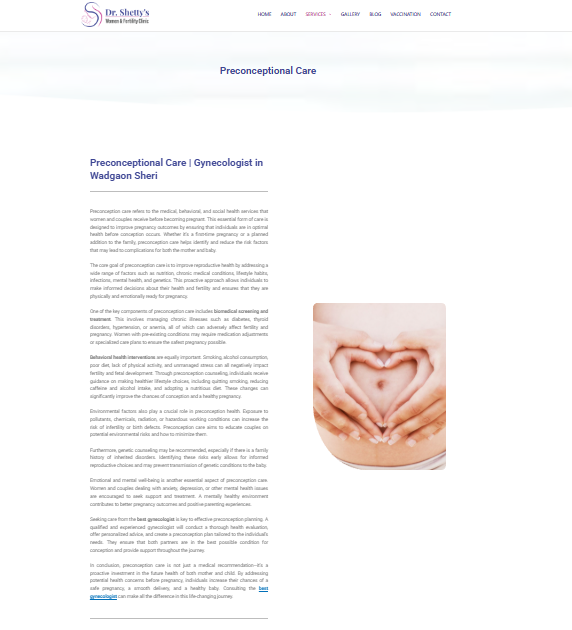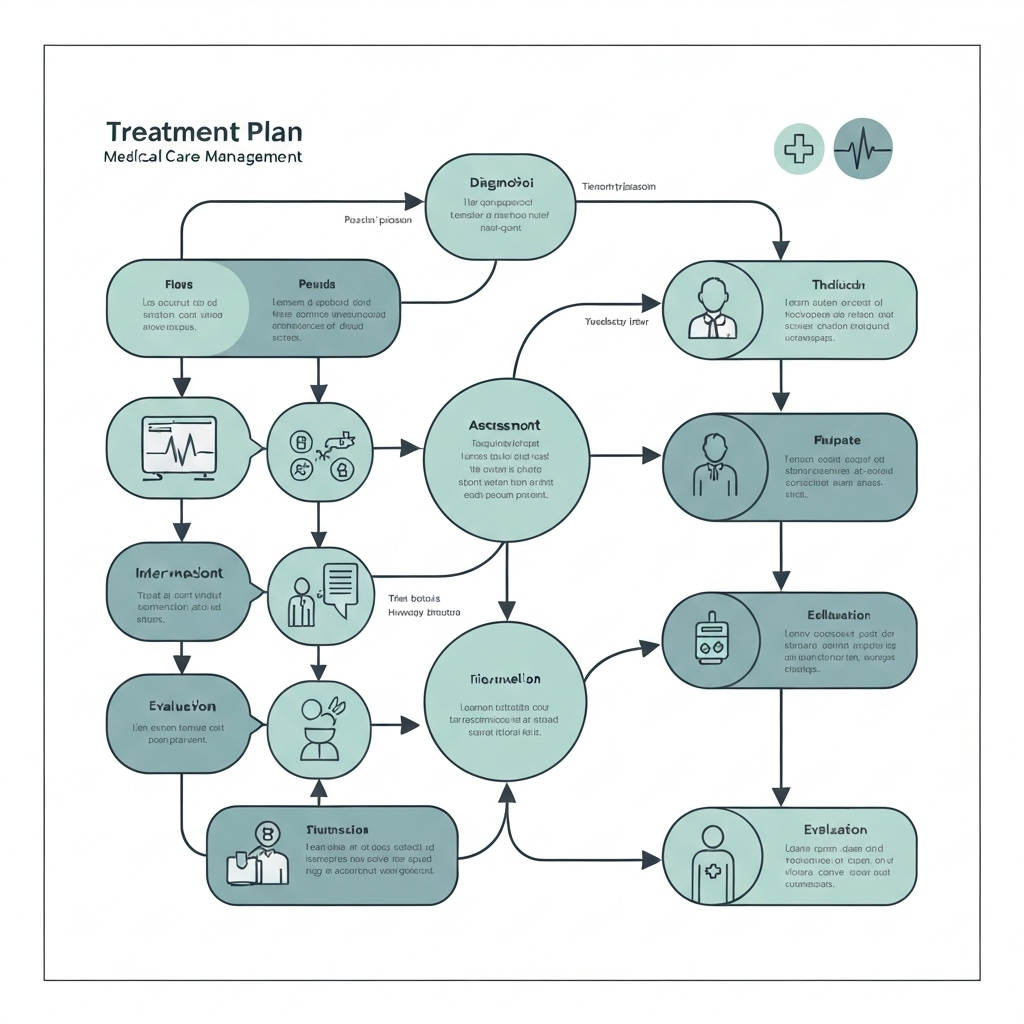Preconceptional Care
Expert care and guidance from Dr. Meenal Warade, your trusted gynecologist.

About Preconceptional Care
Preconception care refers to the comprehensive medical, behavioral, and social health services that women and couples receive before becoming pregnant. This essential form of care is designed to optimize pregnancy outcomes by ensuring that individuals are in optimal physical, mental, and emotional health before conception occurs. At Mai Mother Care, Dr. Meenal Warade provides personalized preconception counseling to help couples prepare for a healthy pregnancy journey.
The core goal of preconception care is to improve reproductive health by addressing a wide range of factors including nutrition optimization, management of chronic medical conditions, lifestyle modifications, infection prevention, mental health support, and genetic counseling. This proactive approach allows individuals to make informed decisions about their health and fertility, ensuring they are comprehensively prepared for pregnancy.
Our preconception care program includes detailed health assessments, nutritional counseling, supplement recommendations, lifestyle modification guidance, and ongoing support throughout your preparation journey. We believe that proper preparation is the foundation of a healthy pregnancy and successful birth outcomes.

Expert Consultation
Personalized care with comprehensive evaluation and treatment planning.

Advanced Technology
State-of-the-art equipment for accurate diagnosis and effective treatment.
Common Causes & Risk Factors
Several interconnected factors can significantly affect fertility and pregnancy outcomes, making comprehensive preconception care essential for optimal reproductive health. Chronic medical conditions such as diabetes mellitus, hypertension, thyroid disorders, polycystic ovary syndrome (PCOS), autoimmune diseases, and heart conditions can substantially impact conception rates and pregnancy health outcomes. These conditions often require careful medication adjustments, specialized monitoring, and coordinated care before attempting pregnancy.
Lifestyle factors play a crucial role in reproductive health and fertility. Smoking tobacco products reduces fertility in both men and women and increases risks of miscarriage, ectopic pregnancy, and birth defects. Excessive alcohol consumption can disrupt hormonal balance and affect egg and sperm quality. Poor nutritional status, including deficiencies in folic acid, iron, vitamin D, and other essential nutrients, can impair fertility and increase pregnancy complications.
Obesity and being underweight both negatively impact fertility and pregnancy outcomes. Environmental exposures to toxins, chemicals, pesticides, heavy metals, radiation, or hazardous substances in the workplace can affect reproductive health and fetal development. Stress, inadequate sleep, and mental health conditions can also influence fertility through hormonal disruptions.
Age-related factors become increasingly important, as fertility naturally declines with advancing maternal age, particularly after 35 years. Previous pregnancy complications, history of miscarriages, family history of genetic disorders, and certain medications can also significantly influence preconception planning needs and require specialized attention.

Lifestyle Factors
Understanding how daily habits and choices impact your health.

Genetic Factors
Family history and genetic predisposition considerations.
Prevention & Management
Effective preconception care involves implementing comprehensive preventive measures to optimize reproductive health and pregnancy outcomes. Achieving and maintaining a healthy body weight through proper nutrition and regular physical activity is fundamental to fertility and pregnancy health. A well-balanced diet rich in folic acid, iron, calcium, omega-3 fatty acids, and other essential nutrients supports optimal reproductive function and fetal development.
Critical lifestyle modifications include complete cessation of smoking, limiting alcohol consumption to minimal levels or complete abstinence, and avoiding all recreational drugs and unnecessary medications. Managing stress through proven relaxation techniques, mindfulness practices, adequate sleep (7-9 hours nightly), and professional mental health support when needed contributes significantly to better fertility outcomes and overall well-being.
Regular comprehensive medical check-ups help identify, monitor, and effectively manage chronic conditions before pregnancy. This includes optimizing blood sugar control in diabetics, managing blood pressure, treating thyroid disorders, and addressing any infectious diseases. Updating all vaccinations, particularly for rubella, hepatitis B, influenza, and COVID-19, protects both mother and developing baby from preventable diseases.
Taking high-quality prenatal vitamins, especially folic acid supplements (400-800 mcg daily), at least one month before conception helps prevent neural tube defects and supports early fetal development. Environmental safety measures include avoiding exposure to harmful chemicals, radiation, infectious diseases, and maintaining good hygiene practices.
Genetic counseling may be recommended for couples with family histories of inherited disorders, advanced maternal age, or previous pregnancy complications. Regular dental care, maintaining optimal oral health, and addressing any underlying health conditions contribute to successful pregnancy outcomes.

Regular Screening
Early detection through routine examinations and preventive care.

Treatment Planning
Customized treatment approaches tailored to individual needs.
Frequently Asked Questions
Ready to Get Started?
Schedule your consultation with Dr. Meenal Warade today for personalized care and expert guidance.